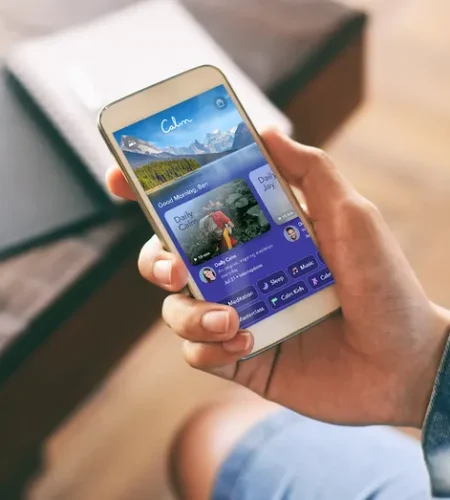In recent years, mental health apps have surged in popularity, sparking a revolution in how we think about and manage our mental well-being. Imagine having a personal therapist, mood tracker, and relaxation coach all in your pocket—this is the new reality thanks to these innovative digital tools. From guided meditations and mood-tracking features to virtual therapy sessions and cognitive-behavioral exercises, these apps are redefining self-care. With technology advancing at a rapid pace, we’re seeing a shift from traditional mental health practices to more accessible and tailored solutions. This digital transformation is not just a trend; it’s a powerful movement towards making mental wellness support more personalized, accessible, and integrated into our daily lives.
A New Era of Accessibility
One of the most significant impacts of mental health apps is their ability to make wellness resources more accessible. Traditional therapy can be costly and time-consuming, often requiring in-person visits that may not be feasible for everyone. Mental health apps break down these barriers by offering a range of services at our fingertips. With apps like Headspace and Calm, users can access guided meditations, breathing exercises, and sleep aids whenever and wherever they need them. This accessibility helps bridge gaps for those who might not have easy access to mental health professionals or who prefer the convenience of digital solutions.
Diverse Offerings for Different Needs
The mental health app market is diverse, catering to various needs and preferences. For instance, apps like BetterHelp and Talkspace offer virtual therapy sessions, connecting users with licensed therapists through text, voice, or video calls. These platforms provide a level of flexibility and anonymity that traditional therapy might not always offer, making it easier for users to seek help.
On the other hand, apps such as Moodfit and Reflect focus on mental health tracking and self-improvement. They allow users to monitor their moods, set personal goals, and receive tailored recommendations based on their emotional patterns. This kind of tracking can be invaluable for understanding triggers, tracking progress, and fostering personal growth.
Evidence-Based Effectiveness
Despite their popularity, the effectiveness of mental health apps has been a topic of scrutiny. Research indicates that many apps can be beneficial, especially when they incorporate evidence-based practices. For example, apps that use cognitive-behavioral therapy (CBT) techniques have shown promise in helping users manage anxiety and depression. Studies have found that CBT-based apps can lead to significant improvements in mood and anxiety levels, demonstrating their potential as complementary tools in mental health care.
However, it’s essential for users to choose apps that are based on solid research and created by reputable organizations. The mental health app market is not without its pitfalls; some apps may lack scientific backing or offer simplistic solutions to complex problems. Therefore, users should look for apps with positive reviews, endorsements from mental health professionals, and transparency about their methodologies.
Personalization and Engagement
One of the appealing aspects of mental health apps is their ability to offer personalized experiences. Many apps use algorithms and user data to tailor content and recommendations, making the experience more relevant to individual needs. This personalization can enhance user engagement and adherence, as people are more likely to stick with tools that resonate with their personal experiences and goals.
For example, an app like Sanvello offers mood tracking and therapeutic exercises tailored to the user’s current emotional state. By adapting its content based on user input, it ensures that the support provided is relevant and timely.
The Future of Digital Wellness
As mental health apps continue to evolve, they are likely to become an integral part of the wellness landscape. Innovations such as AI-driven chatbots and virtual reality (VR) therapy sessions are on the horizon, promising even more immersive and interactive ways to address mental health challenges.
Moreover, the integration of mental health apps with other digital health tools, like fitness trackers and wellness platforms, could create a more holistic approach to self-care. This interconnectedness might lead to a more comprehensive understanding of how physical and mental health intersect, providing users with a more complete picture of their overall well-being.
The rise of mental health apps marks a significant shift in how we approach mental wellness. By offering accessibility, personalization, and evidence-based practices, these digital tools are transforming mental health care and providing valuable support to users around the globe. As technology continues to advance, we can expect even more innovative solutions that will further enhance our ability to manage and improve our mental health.


